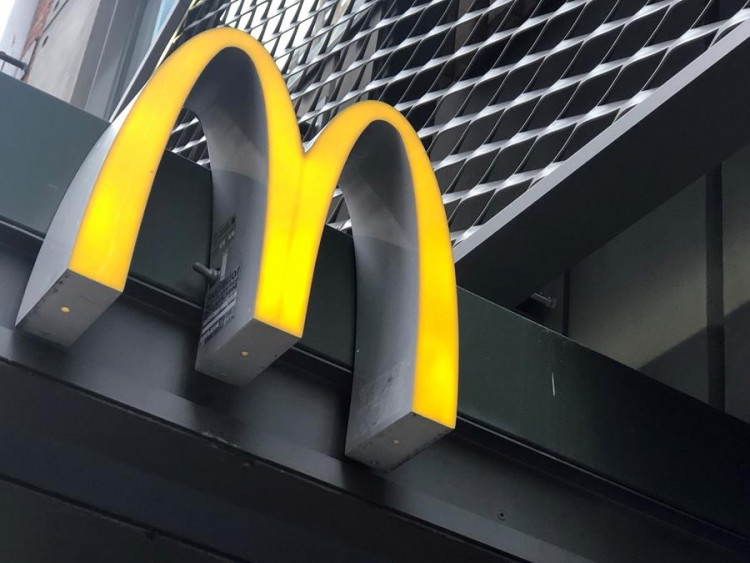McDonald's is grappling with a growing crisis following an E. coli outbreak linked to its popular Quarter Pounder hamburger, which has left one person dead and 10 hospitalized. The outbreak, concentrated primarily in Colorado and Nebraska, has prompted the fast-food giant to engage in extensive damage control as it works to reassure customers and mitigate the fallout from the incident.
The U.S. Centers for Disease Control and Prevention (CDC) issued a food safety alert on Tuesday, confirming that at least 49 people across 10 states have fallen ill, with most of the affected individuals reporting that they had eaten Quarter Pounders at McDonald's locations. The company swiftly removed the Quarter Pounder from menus in the affected states and suspended the use of slivered onions, which are suspected to be the source of contamination, according to the U.S. Food and Drug Administration (FDA).
"We are very confident that you can go to McDonald's and enjoy our classics," McDonald's USA President Joe Erlinger said during an appearance on NBC's Today show. "I want to say to our consumers that you can confidently go to McDonald's today." He emphasized that the company had taken "swift and decisive action" to address the outbreak.
Despite the company's efforts to contain the situation, McDonald's stock has suffered, plunging 7% in premarket trading on Wednesday, marking its worst day since the onset of the COVID-19 pandemic in March 2020. The outbreak has rattled investors, with concerns that the crisis could mirror the food safety debacle faced by Chipotle several years ago.
Chipotle's experience with E. coli and norovirus outbreaks between 2015 and 2016 resulted in the temporary closure of multiple locations and years of rebuilding customer trust. McDonald's now faces similar scrutiny, though analysts are cautiously optimistic that the situation may not reach the same level of severity. Peter Saleh, an analyst at BTIG, noted that while the McDonald's outbreak appears to be more contained, sustained publicity could hurt consumer confidence and slow down traffic at its restaurants.
"While the incident appears to be more contained than others we have seen in the industry, an expansion of the investigation or sustained publicity is what has the potential to weigh on consumer traffic," Saleh wrote in a note to clients. He added that McDonald's may need to adjust its advertising strategy in the wake of the outbreak, potentially shifting its messaging from value deals to a focus on food safety and quality.
McDonald's history with food safety incidents adds another layer of complexity to the current crisis. In 2003, the company faced a scare when a supplier was found to have an incident of mad cow disease. Although the incident was isolated, it temporarily impacted the company's stock. In 2011, McDonald's faced criticism for using a beef product known as "pink slime," which was treated with ammonium hydroxide. Although the company eventually stopped using the product, the controversy lingered for years.
The current E. coli outbreak is likely to test McDonald's ability to manage another food-related crisis. The CDC has not yet identified the exact source of the contamination, though the FDA's preliminary investigation has pointed to slivered onions used in Quarter Pounders. McDonald's has temporarily removed the onions and quarter-pound beef patties from its supply chain in several states as a precautionary measure.
In a statement, McDonald's chief supply chain officer, Cesar Piña, reassured customers that the company is taking "swift and decisive action" to ensure food safety. "The initial findings from the investigation indicate that a subset of illnesses may be linked to slivered onions used in the Quarter Pounder and sourced by a single supplier that serves three distribution centers," he said.
The outbreak has also led to comparisons with Chipotle's yearslong battle with E. coli and norovirus outbreaks. While Chipotle's stock took years to recover, some analysts believe McDonald's might avoid the same fate due to the relatively contained nature of the outbreak. Andy Barish, an analyst at Jefferies, noted that McDonald's has already identified and isolated the source of contamination, whereas Chipotle struggled with repeated outbreaks across the country.
"It's difficult to assess risk in the near term, but Chipotle is not the obvious read-through in our view," Barish said. "The issue/source at McDonald's has been quickly identified and importantly isolated, whereas there was little to no visibility at Chipotle in the early days of their outbreak."
However, the long-term impact on McDonald's reputation remains to be seen. The company is working closely with health authorities to resolve the situation, but as the investigation continues, it is clear that McDonald's will need to navigate this crisis carefully to regain consumer trust and stabilize its stock price.





